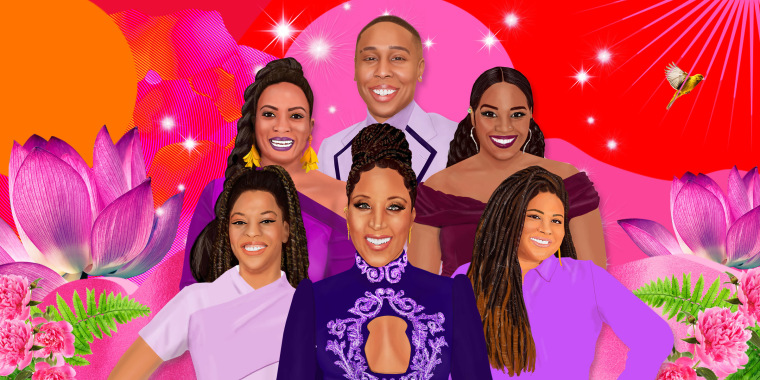Black women in Hollywood have been working behind-the-scenes in TV writing rooms and on sets for decades. Now, more and more, they’re creating their own hit shows.
Take 2022's TV lineup as an example. For her breakout hit sitcom "Abbott Elementary," Quinta Brunson made comedy Emmys history; playwright-turned-showrunner Katori Hall delivered another season of Starz' "P Valley;" Issa Rae is launching a new HBO Max series seven months after "Insecure" ended — and that's just a sampling.
In 2011, just 4% of scripted broadcast television shows were created by a racial minority; and for cable and digital shows, it was 7% and 6% respectively, according to a “Hollywood Diversity” report the University of California at Los Angeles released in 2021. By the end of 2020, racial minorities created 10%, 21% and 15% of all broadcast, cable and digital shows, respectively. There is no breakout data available for specifically Black women show creators.
“Black women have always been behind the scenes and television, particularly (people) like Debbie Allen, Susan Fales Hill, Yvette Lee Bowser, Felicia Henderson,” Lena Waithe, creator of “Twenties” on BET and “The Chi” on Showtime, said in an interview with TODAY. “I think that it’ll only continue to grow because everybody, from what I can see, is mentoring, reaching back.”
Waithe said Black women showrunners — creators who run the day-to-day activity of their TV shows — have their work cut out for them in an industry that has historically been gatekept.
"Everybody, from what I can see, is mentoring, reaching back.”
Lena Waithe
For example, it’s common for white writers to advance in their career faster than any other group, according to a 2022 report issued by Think Tank for Inclusion and Equity, a group of industry professionals working towards equity in the field. The report surveyed 876 people, from staff writers to showrunners, and found that 81% of upper-level white writers with no prior management experience are contracted to show run their projects, compared to 67% of writers who are racial minorities that do have management experience.
The report also found that, for white writers, the assistant route is more of a sure path to ascension in the industry: 68% of white men and 56% of white women respondents got their first TV writing job after being hired as assistants, compared to 26% of non-white men and 20% of non-white women.
To combat these disparities, Black creators are building their own talent pipeline. Waithe and fellow showrunners Nkechi Okoro Carroll and Erika L. Johnson started a Black female television writers group in 2016 called Black Women Who Brunch.
“I remember the three of us were sitting down at dinner and we were just very frustrated that people who worked with us considered us unicorns,” Carroll said in an interview with TODAY. “They were like, ‘There’s no one else like you out there.’ But we knew there were others like us out there. So grateful for the compliment, but I was like that’s not true. There’s lots of dope Black female voices out there.”
Their networking group started from there. Carroll said 12 people came to the first meeting in her living room, where she first met fellow showrunner Tracy Oliver (“Harlem”) and others. Now, the group has almost 200 members. Carroll said the group helps with networking, and placing people in open roles when hiring managers said they “couldn’t find” a qualified Black woman for the position.
“If people come to us and say, OK, fine, who are the Black female genre writers, we can roll off names without thinking twice. What are you looking for, a comedy writer, soap opera? We will find her for you,” Carroll said.
Carroll credits this “sisterhood” as the launching pad that allowed herself and her peers to “flourish and grow together,” but says there’s more work to be done.
TODAY interviewed Carroll and Waithe, plus Robin Thede, Leigh Davenport, Janine Sherman Barrois and Tracy Oliver, in separate Zoom interviews regarding how their sisterhood has become the most reliable option when looking to advance their careers and what aspects of their equity work Hollywood can start doing on its own.
Their responses have been edited for length and clarity.
Lena Waithe
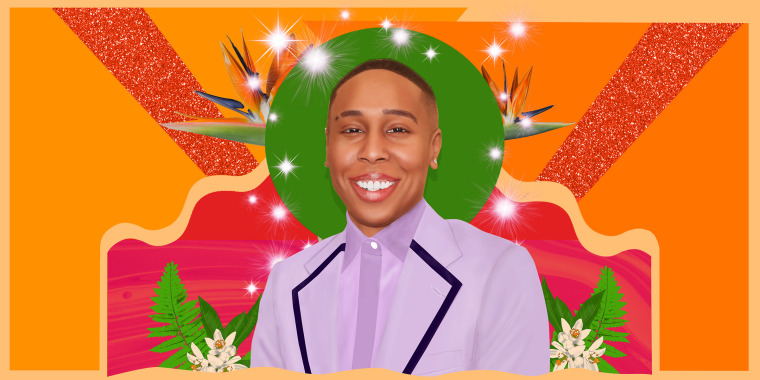
Lena Waithe created Showtime’s “The Chi“ in 2017 and BET’s “Twenties“ in 2020. She also directed the film “Queen and Slim” and previously wrote on Netflix’s “Dear White People.”
On Black women advancing in the industry: “I think that Black women have always been here. It’s just now we’re a little bit more visible and hopefully have a little bit more power.”
On how other Black women have helped her career: “I got my start in the industry as an assistant on 'Girlfriends.' Mara Brock Akil created that show. Then I went on to be a writer’s assistant on 'The Game' (ed. note: Akil also created 'The Game'). I also worked with Gina Prince Bythewood on 'Secret Life of Bees' and I worked as a PA on Ava DuVernay’s 'I Will Follow.' Black women are the reason why I’m where I am. I’m reaching back as well — that’s really the only way to make a change.”
On the changes she wants to see in Hollywood: “I definitely think we could turn the volume up a little bit. Even though it may seem like there’s a lot of Black content, there could still be more. If you think about how many channels are out there, how many streaming services, how many shows there are, it’s still not as equal as it could be. But I think that it’ll only continue to grow because everybody — from what I can see — is mentoring, reaching back and really building this community, which I think is really important.”
Nkechi Okoro Carroll
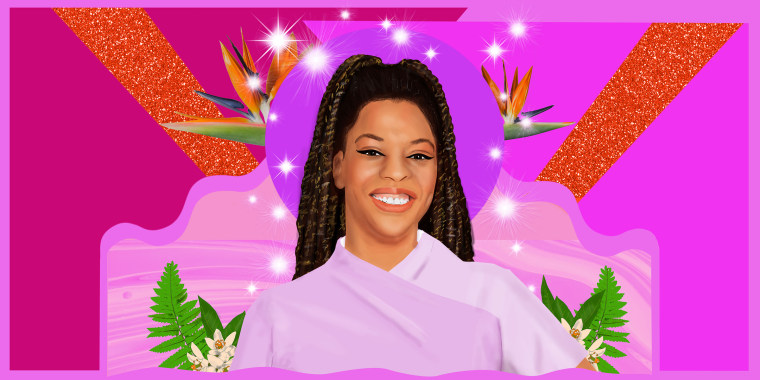
Nkechi Okoro Carroll has been show running CW’s “All American“ since its first season and earlier this year, she launched the spinoff, “All American: Homecoming.“ Previously, she was a co-executive producer on FOX’s “The Resident“ and “Rosewood” after working as a staff writer on FOX’s “Bones” and “The Finder.“
On the “sisterhood” between Black women in Hollywood: “My experience with Black women in this industry has always been such an amazing, supportive sisterhood. It’s always been, ‘OK, I got into this window, but I’m gonna figure out a way to open this floorboard to let you in.’ It’s that sisterhood that has really allowed both myself and my friends to flourish and grow together.”
On the lack of showrunners: There are still a lot of barriers and obstacles for Black female creators and creators of color of all genders. For so long, there was such a disservice done to specifically writers, to writers of color, in terms of having to repeat levels. (They were) given entry, but then not mentored up the ladder, or given opportunities to continue to hone and develop their skills to get up the ladder. You then get up top and they’re always like, ‘Well, we want a Black female showrunner, but we can’t find one.’ And it’s like, OK, but let’s talk about why there are so few of us.”
On what she wants Hollywood to be in the future: “There should be a bigger pool of Black female showrunners that we’re able to pull from in 2022. And there isn’t for the most part, because that middle piece is what was lost for us. It takes the showrunners who are now in these positions to advocate (for people at different levels). We’re the ones that are like, ‘No, we’re not bringing them in at the supervising producer level. Yes, we should give them the double bump to a co-executive producer because that is really where they should be. ‘This person is stuck at this level for various reasons.’ It’s time for us to be the industry that rights the wrongs.”
Robin Thede
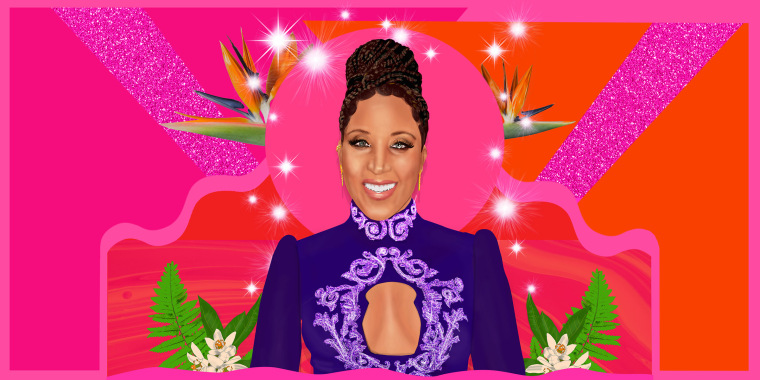
Robin Thede created and has starred in “A Black Lady Sketch Show” on HBO since 2019. She’s been writing jokes for 20 years for names such as Queen Latifah, Kevin Hart, Chris Rock, Anthony Anderson and Mike Epps. Previously, she created and hosted “The Rundown with Robin Thede” on BET in 2017 for one season. In 2016, she became the first Black woman to be the head joke writer for the White House Correspondents’ Dinner.
On being a Black woman showrunner in Hollywood right now: “There’s things that are amazing about it — and there’s things that are lonely about it. Because as much as we see a Shonda Rhimes and Issa Rae, we can still probably name all of us on two hands. It feels like a lot, but there are like 500 shows on television and they’re certainly not all run by Black women — only a handful of them are. The nice thing is, though, we have community and we all talk and we all share trade secrets. I have a group chat with like 30 or 40 of the most powerful Black women in Hollywood. It’s amazing. We’re just there for each other. I will say the feeling of it is very supportive.”
On how to overcome Hollywood’s gatekeeping: “I think people are plucked out of obscurity for a variety of reasons. But I think getting something on the air is about being incredibly good at what you do, and having a unique perspective that’s missing in the TV landscape. And so that, coupled with being able to have access to the right people, you just have to grind it out. But it’s not easy. There are a million people with great ideas who’ll never sell them.”
On how other Black women have advanced her career: “‘A Black Lady Sketch Show’ is at HBO because of Issa Rae. My late night show got canceled. Issa called me immediately, and was like, ‘Congratulations, now what are we doing together?’ and I’m like, ‘I’m sad, my job was canceled.’ She was like, ‘I don’t care. Now we have an opportunity to work together because you’re actually free, and you’re never free.’ I told her that I have this sketch show that I actually sold to a different network, but the money wasn’t right. I was like, ‘Yeah, I want it to look really amazing and I was set on creating the most beautiful sketch show ever.’ So she was like, 'Bring it to HBO.' And we went in, met with them, and they bought it on the spot.’”
On what she wants Hollywood to be in the future: “We’re doing the work. I think that it’s better. But make no mistake, we have a long way to go, and we’re still fighting really hard. I guarantee every single showrunner has had a really tough time getting anything done. Even though I say the sketch show was so easy to sell, it came after years and years and years of doing sketch shows that didn’t make it, pitching ideas that were never bought. So it all comes fast, and seemingly easy, when it comes. But when you peel back that curtain, you see a career of women who have been working tirelessly and having to do all the jobs.”
Leigh Davenport
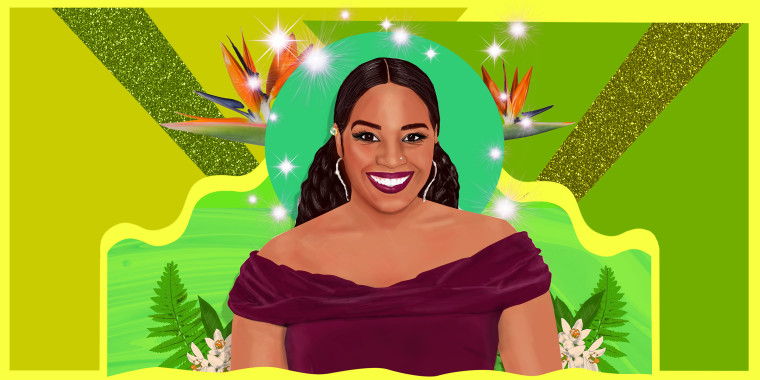
Leigh Davenport was an entertainment journalist before pivoting into show writing and creating. She created “Run the World” on Starz in 2021, a show loosely based on her life. Previously, she wrote and produced for BET and TVOne.
On how to sell a show: “The biggest thing is getting your script in front of people who can do something with it. There’s a lot of people who will read your script just to chat with you and take you to lunch. But really just getting lucky enough to put it in front of people who not only like it and like you — that’s how you can get a job. You can have a script, and they like you and they like your voice. And so they asked you to write on something that they’re writing. But to have a script that (makes) people say, ‘I like you and I like this, and I think this is a TV show,’ it was a different kind of access point that you need.”
On gatekeeping in Hollywood: There is very much still a gatekeepers' mentality, and that comes across. Even within Black creative communities, there are rings that need to be kissed. There are open secrets about people’s behavior and open secrets about the way people treat each other. Everyone’s just like, ‘I’m just going to keep my mouth closed, so I can keep working.’ I don’t think that that culture has really shifted.”
“When you look at what happened with #MeToo, yes, obviously there was a sexual component there. But to me, it was really just symptomatic of the larger power chasm and culture of the business overall. In the way that it was spoken about in #MeToo, it was about the sexualization of that power. But that power is still wielded in really dangerous and harmful ways that are not sexual, that are just about intimidation and manipulation and hazing people and playing games to keep people on their level.
"There’s a lot of emotional work and a lot of mental health work that I think this business requires. This is something we should all be talking about: What is it about this specific business in the way that we engage, talk, treat, lie, keep things quiet, Instagram things away that breeds this kind of energy where people can start to feel so isolated?"
Janine Sherman Barrois
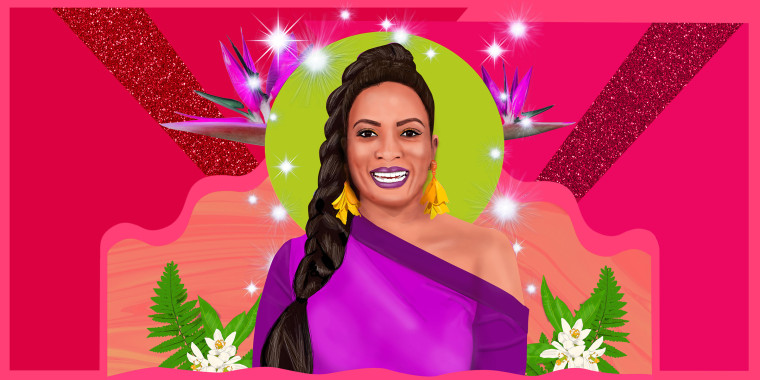
Janine Sherman Barrois created “The Kings of Napa” on OWN, which premiered earlier this year. Previously, she worked on “Self Made: Inspired by the Life of Madame CJ Walker,” “Claws,” “Criminal Minds” and “ER.”
On why Black women in Hollywood are seeing so much success right now: “When you look at someone like Shonda Rhimes, who spent the last 17 years making one of the biggest hits in the world (ed. note: 'Grey’s Anatomy'), I think you cannot deny the power of Black women when you see such amazing, amazing success from her. Other companies are now finally taking a chance. People are realizing that not only is diversity and inclusion important, but there’s money to be made in it, because the world is different. We’re getting more in power, we have a seat at the table. And I think with that, with more execs getting powerful and having control, you’ll see more of us having an opportunity to tell our stories.”
On making room for failure in Hollywood: “We need a fair shake to fail and succeed. Failure’s part of it; failure is where you learn your greatest lessons. And so failure can’t be, ‘Well, I tried with a person of color or Black person, and now it didn’t work out so I won’t do it again.’ No, failure is fine. There’s plenty of white creators who have shows on air that don’t work, but then they come back and they do a mega hit. Or, they do a movie that didn’t do well and they come back and they do a mega hit. And that’s what we’re looking for: artists have to be able to succeed and fail. There’s sometimes a limit to our opportunities. But what we’re trying to do right now is to make the opportunities limitless. And if the opportunities are limitless, then artists will have an opportunity to actually create and have success, have failure, have medium success, have uber success. But all of it is worthy, because that’s how you grow as an artist. If you haven’t failed, you haven’t tried.”
On what she wants Hollywood to be in the future: "We have to continue to fight to tell stories that show us humanized. You see more people of color in power, and they’re able to then hire and look at the crews and say, ‘We actually want inclusion here. We’re not going to stop at the first phone call, we’re going to have parity with other races and genders.’ As we move up, we hopefully pull other people up with us. I think that’s the goal of so many people of color who’ve been fighting for years to make changes in the game."
Tracy Oliver
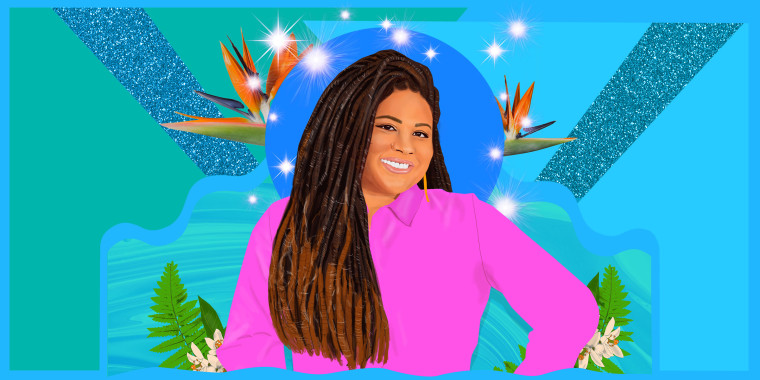
Tracy Oliver created “Harlem” on Amazon Prime in 2021 and “First Wives Club” on BET in 2019. She also wrote the hit “Girls Trip,” which went on to gross $140 million. She co-created and starred in “The Misadventures of an Awkward Black Girl” and was a staff writer on ABC’s “The Neighbors” and Starz’s “Survivor Remorse.”
On making inroads in different genres: “I’ve noticed if Black writers are trying to do Black women in horror, or Black women in sci-fi, or Black women in just a different genre, if there’s not an example of it working, it’s still just as hard of a fight. Because people need examples or a template to use to be able to invest and take a risk on something. I think the progress is OK. We’ve made some success in comedy. We’ve made some success in horror now, which is great. And now just continuing to expand beyond in different genres.”
On the work being ‘exhausting’: “You need people that understand what you’re going through because it’s a really niche issue — how many people out of showrunners are Black showrunners? We all lean on each other and help each other out and mentor and give advice or sometimes just listen, because we have some gripes. It can be exhausting. I sometimes do say this: Maybe I just won’t write Black content anymore. Sometimes I do. The reason I sometimes come to that conclusion is because it’s just hard. And every now and then — because we’re not superhuman — every now and then you just want to give up the fight. And you’re like, there’s an easier way. Maybe I’ll do the easier thing, make my money, live my life and not have to worry about any of this.”
On what she wants Hollywood to be in the future: “There are a lot of Black people that want to watch different genres and want us to be a part of different worlds. So just continuing to expand beyond certain genres that we have historically been into. There’s still a little bit too much of a priority on Black pain and Black struggle stories. I want to see more joyful things. I want to see more just Black love and people just having fun and living life and being ordinary. There’s power in that too.”
